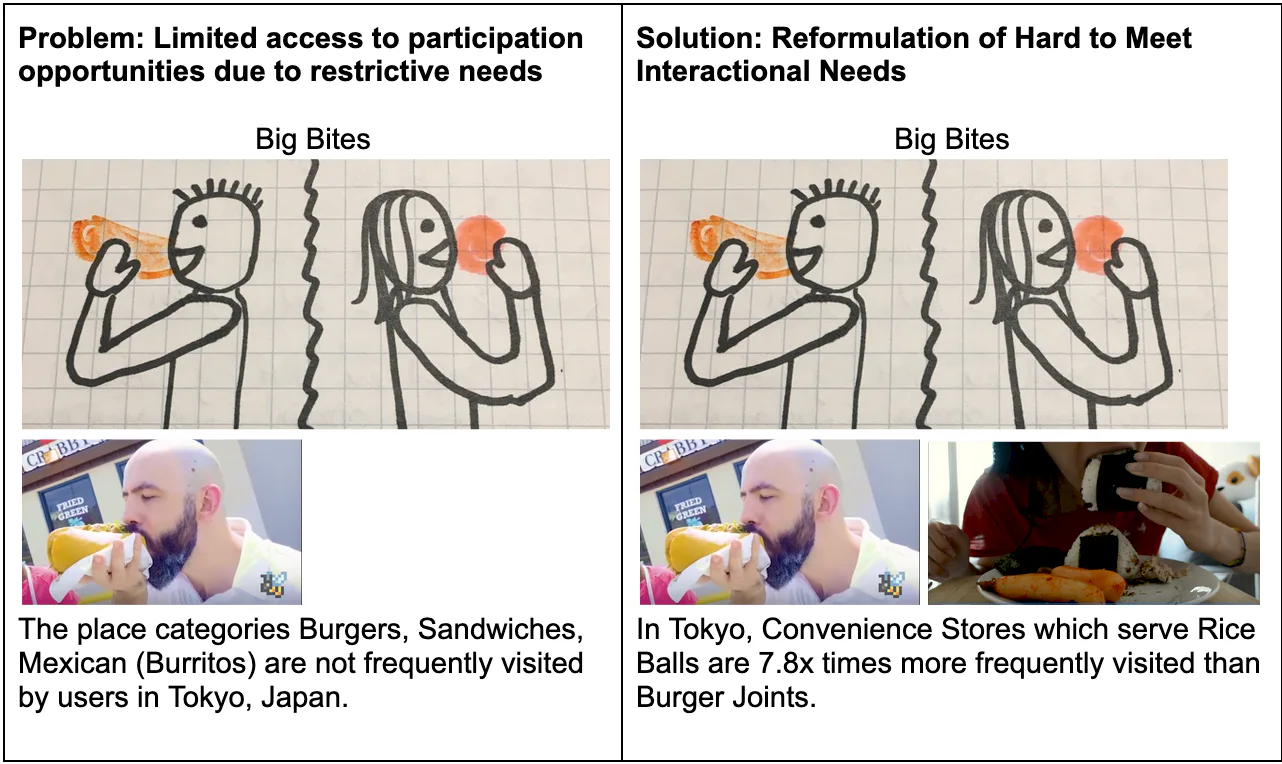Intelligent Execution Engine

Project description
While opportunistic interactions are a promising way of promoting shared activities across space and time that fits into the routines of people’s lives, a core problem is ensuring that the system-identified opportunities to participate actually lead to successful social interactions. For example, incomplete experiences can occur if one person is invited to participate, despite a low likelihood of the partner being available to reciprocate. Shared activities can stall if a rigid definition of the situations needed to participate makes it not accessible to the majority of people in a community.
This project addresses general failures that occur when execution strategies for opportunistic interactions are inflexible and fail to account for when there are insufficient interactional resources (people in specific situations) to achieve the desired social interactions. Our approach adapts principles of flexible computation for allocating resources under uncertainty to support explicitly reasoning about the expected costs and benefits of applying alternative ways of implementing or executing opportunistic experiences.
We demonstrate a variety of techniques for supporting flexibility: (1) reformulating rigidly constructed needs based on models of interaction resource availability; (2) intelligent activation of interaction needs to be based on completion likelihood; and (3) reasoning over the value of partial results to effectively use interaction resources to advance the interaction goals.
Through example case studies, simulation studies, and small deployment studies, we show how flexible computation approaches can promote greater participation, timelier completion of needs, and better progress with only a few contributions. Together, we contribute approaches and systems for successfully coordinating and executing interactions by flexibility strategizing given uncertainties in the availability of people for these interactions.
Team
Faculty
- Haoqi Zhang
Ph.D. Students
- Alumni: Ryan Louie